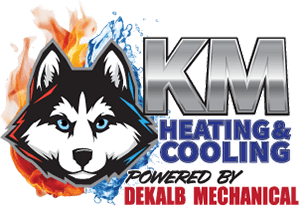

Frequently Asked Questions
Have a question? Explore our FAQs below to see if we’ve already answered it. Still need help? Contact us today and we’ll be happy to assist.
What is a SEER Rating?
SEER stands for Seasonal Energy Efficiency Ratio. It measures how efficiently an air conditioner or heat pump operates over an entire cooling season. A higher SEER rating means better energy efficiency, which usually leads to lower utility bills.
Because the testing is stricter, SEER2 numbers are typically a little lower than traditional SEER, even if the system is equally efficient.
SEER2 is the updated standard introduced in 2023 by the U.S. Department of Energy. It uses a new testing procedure that better reflects real-world conditions.
What are the Benefits of a Two-Stage Furnace?
A two-stage furnace has two levels of heat output:
- Low stage – Runs most of the time, providing steady, even heating while saving energy.
- High stage – Kicks in only on very cold days when extra heat is needed.
Benefits include:
- Better air circulation and comfort throughout the home
- More consistent temperatures (no big swings between hot and cold)
- Quieter operation
- Improved energy efficiency
What are the Benefits of a Wi-Fi Thermostat/Smart Thermostat)?
Smart thermostats like Ecobee go beyond just setting temperatures.
They offer:
- More comfort and control whether you’re home or away
- Remote control from your smartphone, tablet, or voice assistant (Alexa, Google, Siri)
- Energy savings with learning schedules, occupancy sensors, and smart adjustments
- Detailed energy reports so you can see where you’re saving
- Zoning compatibility and integration with smart home devices
What is a MERV Rating on a Filter?
MERV stands for Minimum Efficiency Reporting Value. It’s a scale from 1 to 20 that measures how well an air filter captures particles:
- MERV 1–4: Basic dust and lint protection
- MERV 5–8: Better dust, pollen, and mold spore control
- MERV 9–12: Captures smaller particles like pet dander and fine dust
- MERV 13–16: Traps bacteria, smoke, and even some viruses (common in hospitals and clean facilities)
Higher MERV = cleaner air, but it’s important to choose the right rating for your system so airflow isn’t restricted.
What are the Benefits of a Wi-Fi Thermostat/Smart Thermostat)?
Smart thermostats like Ecobee go beyond just setting temperatures.
They offer:
- More comfort and control whether you’re home or away
- Remote control from your smartphone, tablet, or voice assistant (Alexa, Google, Siri)
- Energy savings with learning schedules, occupancy sensors, and smart adjustments
- Detailed energy reports so you can see where you’re saving
- Zoning compatibility and integration with smart home devices
How often should I service my furnace and AC system?
We recommend a professional tune-up twice a year. Once for your furnace in the fall and once for your AC in the spring. Regular maintenance helps prevent breakdowns, improves efficiency, and extends equipment life.
How long should an HVAC system last?
Most systems last 12–15 years with proper maintenance. High-efficiency systems and well-maintained equipment may last even longer, while neglected systems may need replacement sooner.
Do air purifiers really remove allergens, dust, and odors?
Yes. High-quality purifiers can trap dust, pollen, pet dander, smoke, and even some bacteria. Some advanced systems also neutralize odors and VOCs (volatile organic compounds), making your home smell fresher.
How do I know if my home needs better ventilation?
Signs include lingering odors, condensation on windows, or stale, stuffy air. Poor ventilation can also increase allergens and mold growth. An HVAC pro can evaluate your home and suggest the right solution.
How can I lower my heating and cooling bills?
- Upgrade to a high-efficiency system
- Change filters regularly
- Seal duct leaks and improve insulation
- Use a smart thermostat for scheduling
- Schedule seasonal maintenance to keep systems running efficiently
Can HVAC help with allergies or asthma?
Yes. High-efficiency filters, UV lights, and air purifiers can dramatically reduce allergens and pollutants that trigger symptoms.

